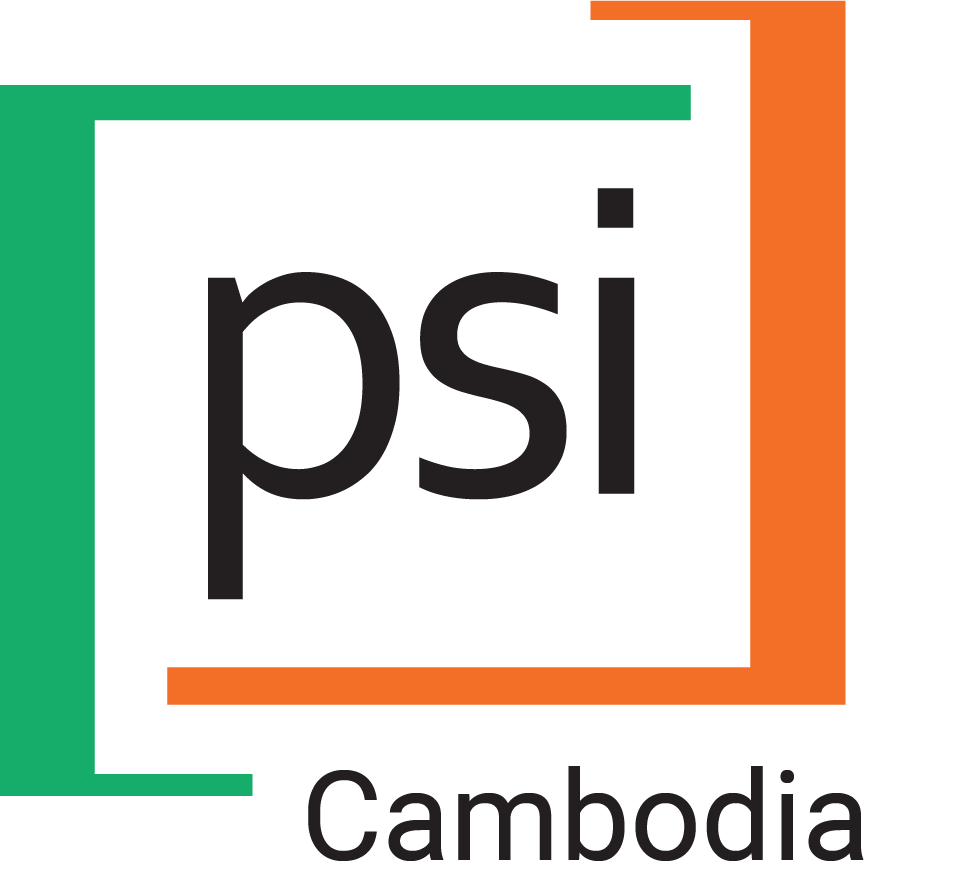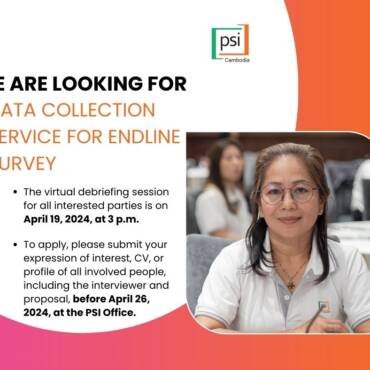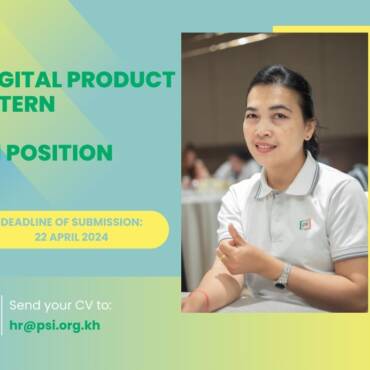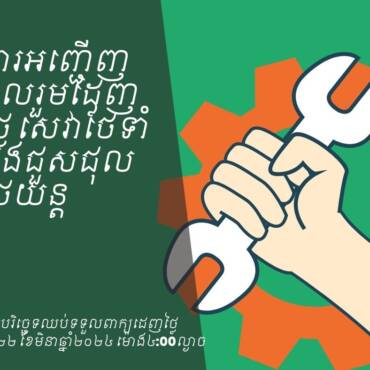A Small Referral Hospital with a Big Vision
Increasing the Use of Electronic PSF to Improve Hospital Service

At least 5 to 10 patients per day (More than 200 patients per month) provide their feedback for the health care services at Sampov Lun RH, according to Pov Raksa, PSF responsible person. (Photo by Savann Oeurm/USAID-EQHA-FHI 360)
Patient feedback is an important and useful tool to reflect the quality of hospital service and to provide evidence to identify areas for improvement. The act of being requested to provide feedback anonymously using modern technology also instills the public’s trust and confidence in the hospital and the health care system.
Sampov Lun Referral Hospital has been receiving support from the USAID EQHA project and the PHD QI team to pilot the electronic PSF system since April 2021. Previously, the hospital collected patient feedback using conventional written forms, and the usage was low. Hospital director, Dr. Poun Sambath, reported several barriers, including patients being unaware of the system, PSF being time-consuming to provide and to analyze written feedback, and patient illiteracy. The short, user-friendly electronic PSF system with an audio option aims to address these barriers and to include more patient voices in service improvement.
With support from EQHA and PHD, Sampov Lun RH QI team developed ideas for change and used the PDSA approach to test those changes. Several innovative best practices have been implemented since August 2021 to facilitate the use of PSF.
First, all hospital staff are orientated on PSF, and duty staff designated to orient patients. Second, PSF is integrated into the patient flow, and a flow chart is displayed at the outpatient waiting area. Third, all patients are oriented on using a PSF tablet without staff influence. Additionally, sticky notes on patient files are used to identify patients who completed PSF and to encourage those yet to participate. PSF data is presented at monthly staff meetings to identify areas requiring further improvement.
As a result, PSF usage increased from 2.1 percent in April 2021 to 72.9 percent in December 2021. However, the number decreased sharply due to the worsening COVID-19 crisis but eventually began to increase again, reaching 47.3 percent in August 2022.
Comparing data collected in June and August 2022, the rate of patients reporting “very satisfied” or “satisfied” regarding overall service received was 82 percent versus 96 percent, respectively; quality of consultation received 81 percent versus 97 percent; cleanliness and hygiene of the hospital 79 percent versus 96 percent; and friendliness of the physician 82 percent versus 95 percent. Additionally, 86 percent of patients in June and 89 percent in August reported an average wait time of less than 30 minutes. 99 percent of patients in August also stated that they would return to the hospital and are willing to refer Sampov Lun RH to their friends and family.
The dedicated QI team at Sampov Lun RH has demonstrated their enthusiasm to use QI approaches to continue improving services and to achieve the 55 percent PSF usage goal. Mr. Mem Vattanak, deputy chief of the general medicine ward, stated that patients are happier with hospital services and patient numbers have increased. Currently, the general medicine ward is reported to be nearing full capacity. Sampov Lun Referral Hospital is truly a small district hospital with a big vision that strives to utilize QI approaches to improve its services to the community.
Notable quotes on the electronic patient satisfaction feedback system:
“PSF data is useful for staff to change and improve service, and a motivator for them to provide good service” — Mr. Nem Vattanak, deputy chief of general medicine ward
“Using digital electronic tablet system makes it easier than writing on paper, and it allows me to express my opinion about service provided, consultation and hygiene without fear” — hospital patient
“Currently the general medicine ward is almost at full capacity, patients are happy to come to the hospital” — Mr. Nem Vattanak
“We understand this is voluntary, but we have not had patients refuse to provide feedback after they were oriented” — Mr. Nem Vattanak



